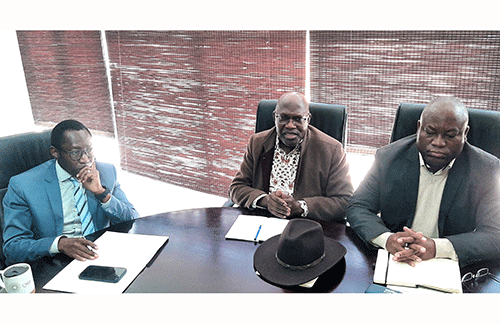SWAKOPMUND – Namibia only has three mining inspectors, a situation that has raised concerns about the effective monitoring of mining activities in the Erongo region.
Mining inspectors play a vital role in conducting inspections of mining operations and recommending necessary remedial action.
Erongo governor, Neville Andre, expressed these concerns yesterday during a meeting with the sub-committee of the parliamentary standing committee on mining and natural resources.
Andre emphasised the significance of Erongo’s abundant natural resources, including marble stones, gold, uranium, and rare earth metals. These resources contribute significantly to the country’s GDP and economic development. He stressed the critical need for additional mining inspectors in Erongo region.
According to the governor, some small-scale mining operators in the region do not observe national laws, particularly concerning operations and labour matters, and operate without proper oversight.
“Many times, we are unaware of the activities taking place; sometimes we only become aware of them accidentally. There is also a lack of communication regarding activities in Erongo. However, we have engaged the ministry to seek solutions to these challenges,” explained Andre.
He said these activities often go unmonitored due to the shortage of mining inspectors.
“We have occasionally conducted joint visits with various stakeholders to observe mining activities, but overall, the situation is regrettable,” said Andre.
In June this year, Isabella Kandjii-Chirchir, the mining commissioner, also expressed concerns about the shortage of mining inspectors during a mines and energy workshop in Swakopmund.
“We only have three mining inspectors in the entire country, and we are making provisions to request additional funding from the office of the Prime Minister to recruit more inspectors.
“Namibia’s vast size necessitates greater coverage. In our proposal, we have requested the establishment of regional offices in areas with high mining activity, equipped with inspectors dedicated to monitoring mining activities and visiting mines,” said Kandjii-Chirchir at the time.
In the meantime, the sub-committee of the Parliamentary Standing Committee on Natural Resources plans to engage various mines and stakeholders during oversight visits.
According to Kletus Karondo, the committee’s chairperson, their focus will be on evaluating mining companies’ compliance with environmental regulations and their fulfilment of corporate social responsibility mandates in the region.
“Our aim is to familiarise ourselves with the progress of renewable energy initiatives undertaken by mining companies in the region, as well as assess the extent of local ownership in mines,” said Karondo.
Parliamentarian and sub-committee member Tjekero Tweya elaborated on the oversight function of the committee.
“This week, we will be in Erongo to exercise our constitutional obligation, which involves conducting on-site inspections. We will visit various locations to witness first-hand what is transpiring and compile a comprehensive report to present to parliament,” said Tweya.
– edeklerk@nepc.com.na


